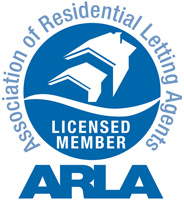Deposit Protection

Karsons Lettings use the governments custodial deposit protection scheme, The Deposit Protection Service. The deposit is paid over to the scheme within 14 days and the tenant is given information regarding the terms and conditions of the scheme. For more information visit: www.depositprotection.com Registering deposits with the Deposit Protection Service is free.
Why should the government wish to protect tenants' deposits?
The aim of the legislation is to ensure that a tenant paying a deposit, and who is entitled to get all or part of it back at the end of the tenancy, does so.
What sort of tenancies will require deposit protection?
All assured shorthold tenancies (AST) - the most common form of new tenancy – created after 6th April 2007 in England and Wales.
When will deposit protection come into force?
6th April 2007. The new rules will apply to all new ASTs created in England and Wales after that date. They will not apply to ASTs created before 6 April 2007 and which are still in force at that date.
What is an insurance-based tenancy deposit protection scheme?
An insurance based tenancy deposit scheme is a membership scheme that allows the landlord to continue to hold any deposit they take from a tenant during the period of the tenancy agreement. The landlord will be required to pay a fee to protect any deposits taken from a tenant. If there is a dispute over the return of the deposit at the end of the tenancy, the scheme, supported by an insurance policy, will ensure that the amount to which the tenant is entitled is returned. As necessary, the scheme insurers will recover the disputed amount from the landlord.
The scheme is also required to provide deposit dispute assistance which will be provided free of charge to all parties.
www.mydeposits.co.uk
What is a custodial tenancy deposit protection scheme?
Landlords, agents and tenants can all request the repayment of a deposit to the appropriate parties at the end of a tenancy – either jointly or independently, online or by telephone. When one party requests a repayment, the other needs to confirm whether they agree with the proposal, by completing an acceptance form – either online or by post. It is in the best interests of all parties to agree promptly on how the deposit is to be repaid, so that everyone receives the funds due to them quickly and amicably. All deposits are repaid within 10 working days of the correctly completed acceptance form being received by The DPS.
An independent Alternative Dispute Resolution (ADR) service, run by the Chartered Institute of Arbitrators, will aim to resolve any disputes quickly and without the need for court action. Landlords, agents and tenants could also earn interest on any proportion of the deposit they are entitled to retain at the end of a tenancy.
www.depositprotection.com
What protection does the tenant have if the deposit is not protected?
If a deposit is not protected, the landlord will be breaking the law. S/he will be unable to regain possession of the property using notice-only grounds for possession under Section 21 of the Housing Act 1988. The tenant can apply for a court order requiring the deposit to be protected, or for the prescribed information to be given to them. If the court is satisfied that the landlord has failed to comply with these requirements, or is not satisfied that the deposit is being held in accordance with an authorised scheme, the court must either:
a) Order the landlord to repay the deposit within 14 days of the issuing of the court order, or
b) Order the landlord to pay the deposit into the designated account held by the custodial scheme administrator.
The court must also order the landlord to pay to the tenant (or person who paid the deposit on his/her behalf) an amount equivalent to three times the deposit amount within 14 days of the making of the order.
Can a landlord circumvent the regulations by taking a deposit in other than monetary terms?
The Housing Act does not allow anything other than money to be used as a deposit. A landlord seeking to circumvent the regulations by taking an item other than money from the tenant may be in breach of the law.
Will legislation affect deposits on ASTs starting before 6th April 2007 and renewed after that date?
The legislation will apply only to new deposits taken on or after 6th April 2007. Any deposit taken before this date will not need to be protected. If a tenant remains in the existing rented property beyond the initial fixed term, treatment of the deposit will depend on how the tenancy is continued. If the tenancy continues as a periodic tenancy, no new AST will have been created in which case the deposit will not need to be protected by a tenancy deposit scheme. If a new AST is created between the same landlord and tenant for the same property on substantially the same basis (i.e. a 'replacement tenancy'), then the initial deposit that was paid prior to 6th April 2007 will then need to be protected and the landlord will need to safeguard it by joining a scheme.


